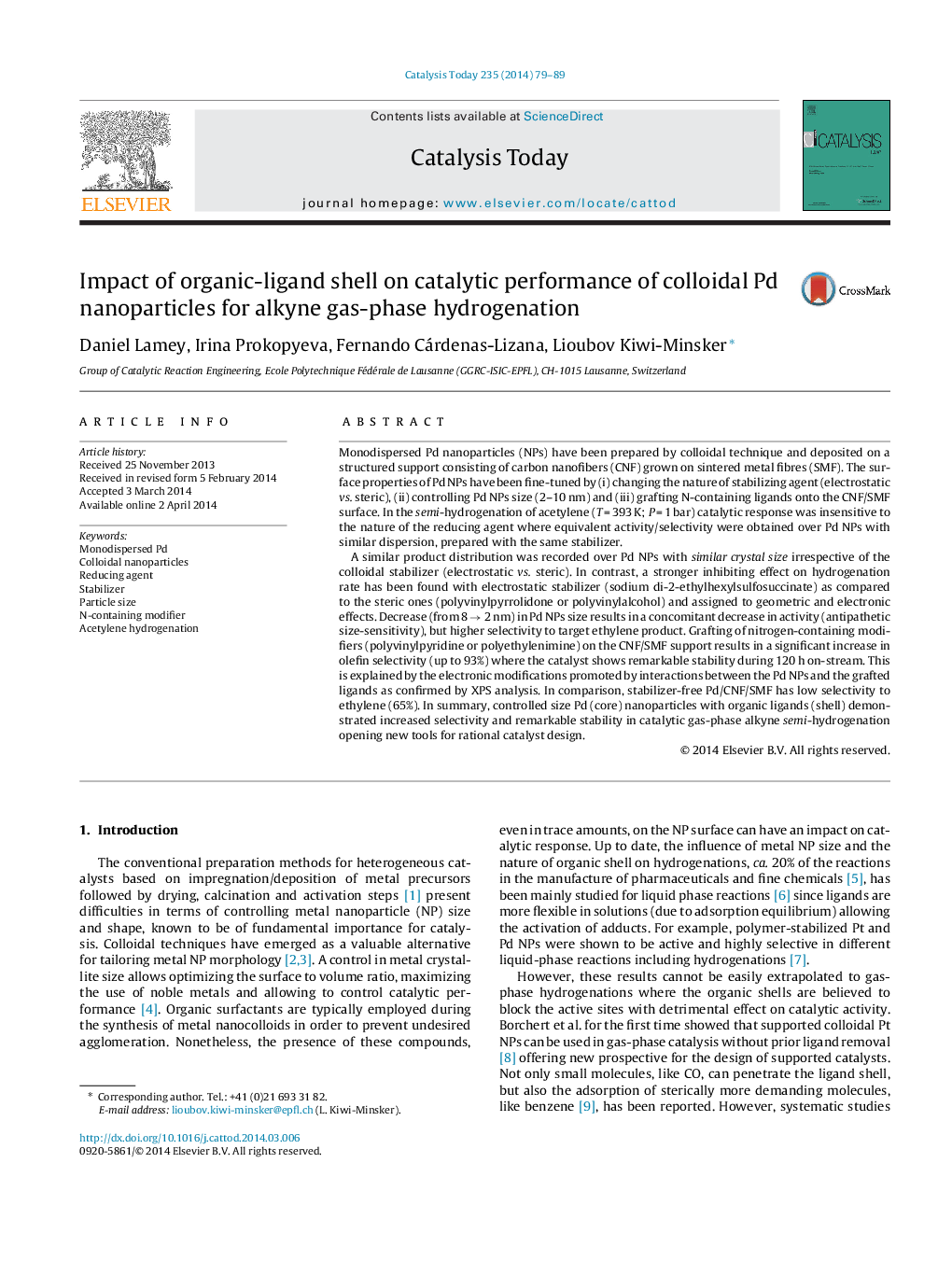| کد مقاله | کد نشریه | سال انتشار | مقاله انگلیسی | نسخه تمام متن |
|---|---|---|---|---|
| 54679 | 47020 | 2014 | 11 صفحه PDF | دانلود رایگان |

• Pd core and organic-ligand shell monodispersed nanoparticles were prepared.
• Fine-tuning of surface properties through ligand-shell and Pd size.
• No influence of the reducing agent on the catalytic response.
• Increased catalytic performance over sterically stabilized colloids.
• Remarkable increase in selectivity/stability by grafting N-containing ligands.
Monodispersed Pd nanoparticles (NPs) have been prepared by colloidal technique and deposited on a structured support consisting of carbon nanofibers (CNF) grown on sintered metal fibres (SMF). The surface properties of Pd NPs have been fine-tuned by (i) changing the nature of stabilizing agent (electrostatic vs. steric), (ii) controlling Pd NPs size (2–10 nm) and (iii) grafting N-containing ligands onto the CNF/SMF surface. In the semi-hydrogenation of acetylene (T = 393 K; P = 1 bar) catalytic response was insensitive to the nature of the reducing agent where equivalent activity/selectivity were obtained over Pd NPs with similar dispersion, prepared with the same stabilizer.A similar product distribution was recorded over Pd NPs with similar crystal size irrespective of the colloidal stabilizer (electrostatic vs. steric). In contrast, a stronger inhibiting effect on hydrogenation rate has been found with electrostatic stabilizer (sodium di-2-ethylhexylsulfosuccinate) as compared to the steric ones (polyvinylpyrrolidone or polyvinylalcohol) and assigned to geometric and electronic effects. Decrease (from 8 → 2 nm) in Pd NPs size results in a concomitant decrease in activity (antipathetic size-sensitivity), but higher selectivity to target ethylene product. Grafting of nitrogen-containing modifiers (polyvinylpyridine or polyethylenimine) on the CNF/SMF support results in a significant increase in olefin selectivity (up to 93%) where the catalyst shows remarkable stability during 120 h on-stream. This is explained by the electronic modifications promoted by interactions between the Pd NPs and the grafted ligands as confirmed by XPS analysis. In comparison, stabilizer-free Pd/CNF/SMF has low selectivity to ethylene (65%). In summary, controlled size Pd (core) nanoparticles with organic ligands (shell) demonstrated increased selectivity and remarkable stability in catalytic gas-phase alkyne semi-hydrogenation opening new tools for rational catalyst design.
Figure optionsDownload high-quality image (161 K)Download as PowerPoint slide
Journal: Catalysis Today - Volume 235, 15 October 2014, Pages 79–89